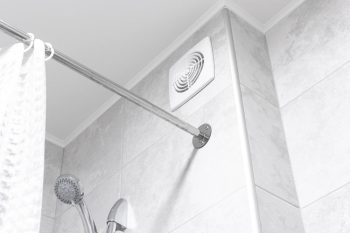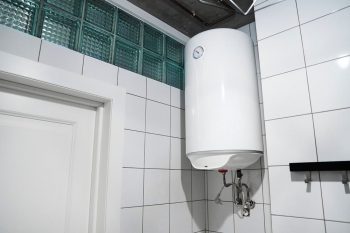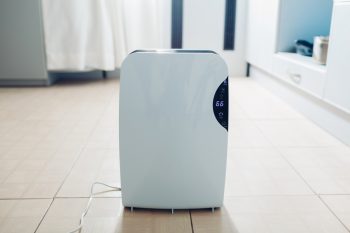
The British Thermal Unit (BTU) rating for an air conditioner is a vital factor that determines the unit’s cooling capacity. It indicates the amount of heat an air conditioner can remove from a room in one hour. But how is this rating calculated, and why is it important? Let’s delve deeper into the world of BTUs and air conditioners.
The BTU (British Thermal Unit) rating for an air conditioner determines its cooling capacity, indicating the amount of heat it can remove from a room in one hour. Higher BTU ratings mean the unit can cool a larger space more effectively. To calculate the BTU rating for an air conditioner, you generally need around 20 BTUs per square foot of living space. However, other factors like insulation, sunlight exposure, and the number of occupants should also be taken into account.
Understanding BTU
BTU stands for British Thermal Unit. It is a traditional unit of heat that is part of the British Imperial system of units. In the context of air conditioning, BTUs represent the cooling capacity of the unit. Essentially, a higher BTU rating means that the air conditioner can cool a larger space more effectively.
The Importance of BTU Rating
The BTU rating is essential when choosing an air conditioner because it indicates the cooling capacity of the unit. A high BTU rating means the air conditioner has a larger cooling capacity and is better equipped to cool a larger space. Conversely, a lower BTU rating suggests that the unit is suitable for smaller spaces.
Selecting an air conditioner with the appropriate BTU rating for your space is crucial for several reasons:
- Energy efficiency: An air conditioner with too many BTUs for your space can lead to increased energy costs, while a unit with too few BTUs may not properly cool your space.
- Comfort: The right BTU rating ensures that your air conditioner can effectively cool your space, providing optimal comfort during hot summer months.
- Avoiding condensation problems: An air conditioner with too high a BTU rating can cool your space too quickly, leading to wasted energy and potential condensation issues.
- Cooling load: The BTU rating should match the cooling load of your space, which is the amount of heat that needs to be removed to maintain ideal temperatures.
How to Calculate BTU Rating
Calculating the BTU rating for an air conditioner involves considering the size of the room or area to be cooled, as well as other factors such as insulation, sunlight exposure, and the number of occupants. As a general rule, an air conditioner needs around 20 BTUs per square foot of living space.
To estimate the BTU rating for an air conditioner, follow these steps:
- Measure the square footage of the room by multiplying its length by its width.
- Multiply the square footage by 20 BTUs to get the basic BTU requirement.
- Adjust the BTU requirement based on factors such as insulation, sunlight exposure, and the number of occupants in the room.
Factors Affecting BTU Rating
When choosing the right BTU rating for a home, several factors should be considered to ensure optimal cooling and energy efficiency. These factors include:
- Room size and ceiling height
- Quality of insulation
- Climate
- Window size and sun exposure
- Number of occupants
- Unoccupied spaces
BTU Rating and Energy Efficiency
The BTU rating of an air conditioner directly affects its energy efficiency and operating costs. A system with a higher BTU rating will consume more power, but it will also cool a larger space more effectively. Therefore, it’s essential to strike a balance between the BTU rating and the size of the space to ensure energy efficiency.
Conclusion
In conclusion, the BTU rating is a vital factor to consider when choosing an air conditioner. It directly impacts the unit’s cooling capacity, energy efficiency, and operating costs. By understanding how BTU ratings work and how to calculate them, you can make an informed decision and choose the right air conditioner for your needs.
Frequently Asked Questions
What does a BTU measure in terms of air conditioning?
In terms of air conditioning, a BTU measures the amount of heat an air conditioner can remove from a room in one hour. Essentially, it quantifies the cooling capacity of the unit.
What can happen if my air conditioner has too high a BTU rating for my space?
An air conditioner with a BTU rating that’s too high for your space can lead to increased energy costs because it consumes more power. It can also cool your space too quickly, potentially leading to condensation problems.
How does the number of occupants in a room affect the BTU rating needed?
The number of occupants in a room can affect the BTU rating needed because each person generates a certain amount of heat. Therefore, more people in a room can increase the cooling load, necessitating a higher BTU rating.
Why is insulation important when considering BTU rating?
Insulation is important when considering BTU rating because good insulation can reduce the cooling load by preventing warm air from entering and cool air from escaping. This means you might require a lower BTU rating for a well-insulated space compared to a poorly insulated one.
Are there any tools to help calculate the BTU rating I need?
Yes, there are online BTU calculators that can help you estimate the BTU rating you need. You simply input details about your space, such as size, insulation, and number of occupants, and the tool will provide an estimate. However, it’s always a good idea to consult with a HVAC professional for an accurate assessment.












